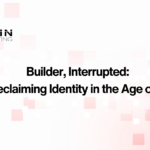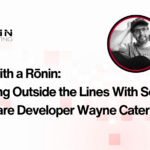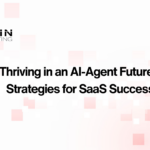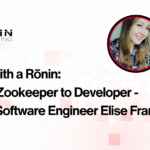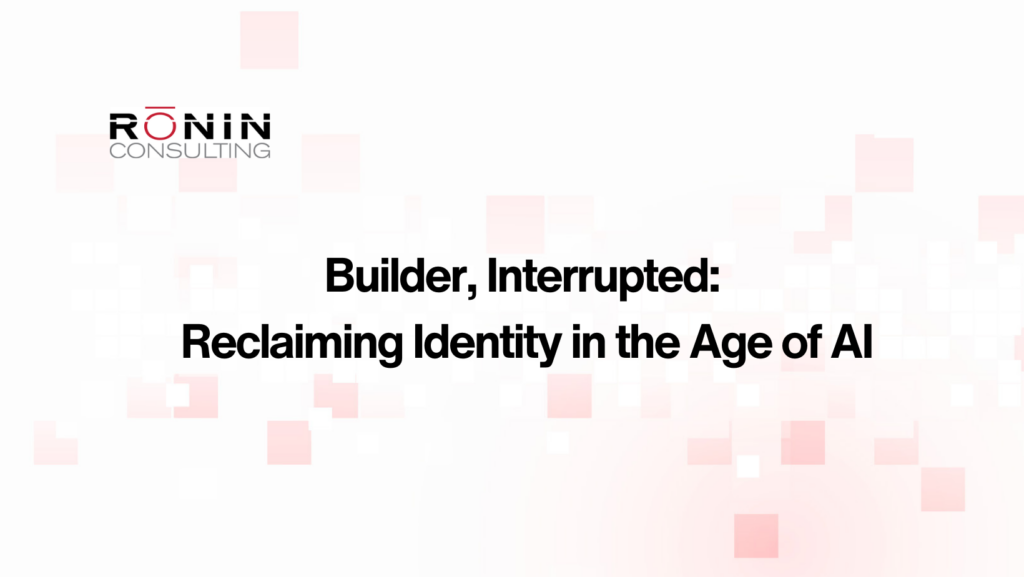
My identity crisis in the age of AI
As a software engineer with 30 years of experience, I’ve witnessed the evolution of our craft, from punch cards and BASIC on a Commodore 64 to the rise of AI-driven development.
The tools have changed, but the core of why I became an engineer has always been the same: the thrill of building something with my hands, mind, and code.
A wake-up call from Annie Vella
So, when I read Annie Vella’s article, The Software Engineering Identity Crisis, it hit me hard. It’s a wake-up call about how AI is reshaping not just how we work, but who we are as engineers. In her article, she says:
Many of us became software engineers because we found our identity in building things. Not managing things. Not overseeing things. Building things. With our own hands, our own minds, our own code. But that identity is being challenged. AI coding assistants aren’t just changing how we write software – they’re fundamentally transforming who we are.”
This resonates deeply.
For decades, I’ve taken pride in crafting elegant solutions, debugging gnarly problems, and seeing my code come to life. But now, AI tools are taking over chunks of that process, turning us into orchestrators, or dare I say, managers, of systems rather than hands-on creators.
Loss of identity or a shift in scope?
It’s not just AI, though. Vella points out an irony that stings:
For years, we’ve said that software engineering transcends mere coding… Yet the industry pushed us in the opposite direction.”
She’s right. Over my career, I’ve seen so many roles fragment. Where once I might have owned a project from concept to deployment, specialization carved up those responsibilities.
Now, AI threatens to commoditize the one piece we could hold on to: coding itself.
But there’s hope: reclaiming the role
Don’t worry because Vella doesn’t leave us in despair.
In her follow-up article, Dear Software Engineer: It’s Time to Reclaim Your Role, she offers a path forward.
She notes that AI is already reducing the time we spend coding, with 78% of 165 engineers surveyed across 28 countries reporting they spend less time on it due to AI tools. She discussed the new paradigms that are emerging like CHOP (Chat-Oriented Programming) and BATON (Bot-Assisted Task Orchestration).
In these new models, we collaborate with AI to build software rather than writing every line ourselves. We work together.
For someone like me, who’s seen the industry through multiple transformations, this feels like both a challenge and an opportunity.
But the challenge is real, and after 30 years doing what I love, the idea of stepping back from coding to “orchestrate“ AI feels like losing a piece of my soul.
I didn’t sign up to be a manager. I signed up to build.
And yet, Vella’s argument that AI could let us reclaim the broader scope of engineering is compelling.
By offloading routine coding to AI, we can focus on:
- Designing resilient systems,
- solving complex problems,
- engaging with stakeholders and
- creating solutions that truly matter.
Staying relevant in an AI world
This shift also raises questions about relevance.
Vella warns that engineers who remain solely focused on coding, or “traditional engineers,“ are at risk.
In contrast, “product engineers“ who participate in all aspects of development are better positioned to thrive.
Over the last decade, specialization led to roles like Product Owners, Business Analysts, Designers, etc., leaving many engineers focused only on coding, making them vulnerable to AI.”
As a veteran, I’ve been lucky to work on projects end-to-end, and I see now how that breadth of experience is a strength. If anything, it’s a reminder to younger engineers not to get pigeonholed.
So, what does this mean for us?
For me, it’s a call to adapt, but let me be clear: I’m no stranger to adjusting on the fly. I’ve learned new languages, frameworks, and methodologies over the years. AI is just another notch in my belt.
Tools like Codeium’s Windsurf or Cursor don’t replace our skills; they amplify them. I can still be a builder; I now use AI as a partner instead of writing every line by hand.
A divisive shift and a path forward
This isn’t without controversy.
On platforms like X and LinkedIn, debates rage about whether AI will augment or replace engineers.
My take?
It’s both a tool and a shift. The key is how we respond.
We can resist AI and cling to the old ways. Or we can lead from the front and show the world how to blend human ingenuity with AI’s power.
To my fellow veterans and the next generation
For my fellow veterans, this is our moment. We’ve navigated Y2K, the dot-com bust, and countless tech waves.
We have the experience to:
- guide teams
- mentor juniors
- shape how AI integrates into our craft
There has never been a better time to be in our shoes.
Now is the time to step up as leaders and bridge the gap between what was and what’s next. We’ve worked our way through the thick of it, and it’s only made us wiser. Now, we can help chart the course, ensuring AI doesn’t just rewrite code but rewrites it with purpose.
For you newer engineers, it’s a chance to learn from us veterans. Soak everything up like a sponge, and push the boundaries of what’s possible. Because the more you push, the more opportunity opens up. Challenge assumptions, question the defaults, and don’t wait for permission to innovate.
Just do.
What’s next for us in this age of AI?
Vella’s call to “reclaim your role“ is a rallying cry. It isn’t just for one group of engineers but for all of us.
Let’s broaden our skills.
Let’s re-engage with the full software lifecycle.
Let’s use AI to enhance, not replace, our creativity.
Let’s stop writing and start doing it.
I’ll start.

